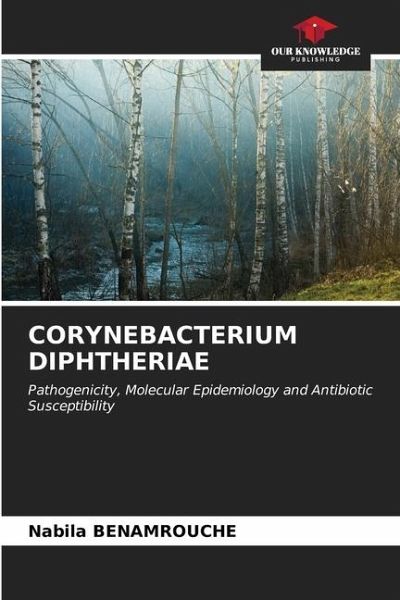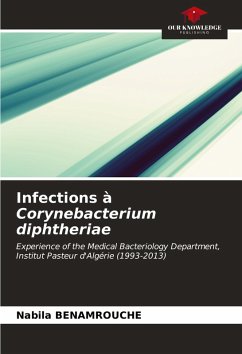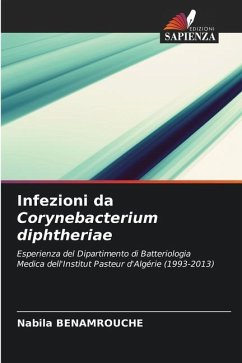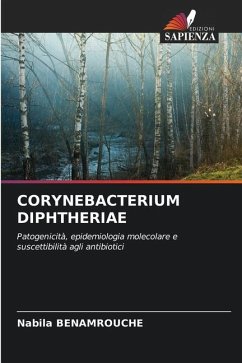
CORYNEBACTERIUM DIPHTHERIAE
Pathogenicity, Molecular Epidemiology and Antibiotic Susceptibility
Versandkostenfrei!
Versandfertig in 6-10 Tagen
40,99 €
inkl. MwSt.

PAYBACK Punkte
20 °P sammeln!
Corynebacterium diphtheriae is the causative agent of diphtheria, a serious but vaccine-preventable disease. Symptoms range from mild angina to asphyxia. Diphtheria toxin is responsible for the local and systemic clinical manifestations of diphtheria. There are four biotypes of C. diphtheriae: gravis, mitis, intermedius and belfanti. Although diphtheria is currently controlled by compulsory mass vaccination, it remains endemic in many countries of Asia, the Middle East, Africa, Eastern Europe and South America. Epidemics have also occurred in Asia, Africa and Latin America. In developed countr...
Corynebacterium diphtheriae is the causative agent of diphtheria, a serious but vaccine-preventable disease. Symptoms range from mild angina to asphyxia. Diphtheria toxin is responsible for the local and systemic clinical manifestations of diphtheria. There are four biotypes of C. diphtheriae: gravis, mitis, intermedius and belfanti. Although diphtheria is currently controlled by compulsory mass vaccination, it remains endemic in many countries of Asia, the Middle East, Africa, Eastern Europe and South America. Epidemics have also occurred in Asia, Africa and Latin America. In developed countries, infections are mainly due to non-toxigenic strains of C. diphtheriae, often associated with imported cases. Molecular characterization makes it possible to track the geographical and temporal evolution of circulating strains, to distinguish between endemic and epidemic cases, indigenous and imported cases, and to understand and monitor modes of diphtheria transmission. Maintaining vaccination coverage 95% and ongoing surveillance are essential for the prevention of this disease.












